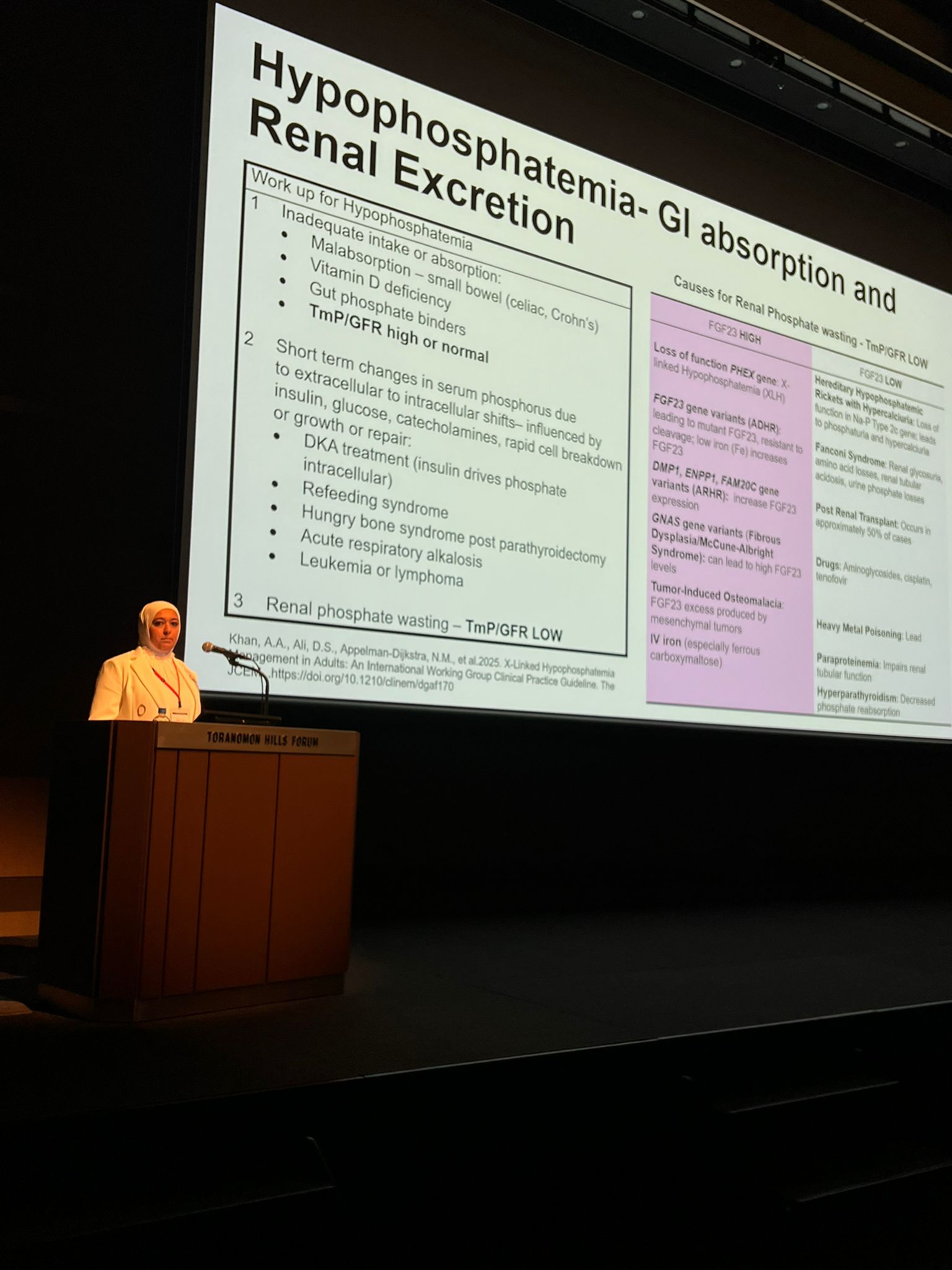
Dr Dalal Ali presenting on XLH guidelines in Japan November 2025
McMaster University provides both 1 and 2 year fellowship programs in Metabolic Bone Disease. Successful completion of the program will enable the fellow to evaluate, diagnose, and provide evidence-based management of complex metabolic bone diseases. These include osteoporosis in pre and postmenopausal women as well as in men, fibrous dysplasia, sclerotic bone diseases, osteomalacia, osteogenesis imperfecta, hypophosphatasia, X-linked hypophosphatemia, renal osteodystrophy and Paget’s disease. The fellow will also gain competence in evaluating complex calcium and parathyroid disorders as well as an understanding of how and when to complete genetic testing for calcium disorders as well as metabolic bone diseases. The fellow will attend the American Society of Bone and Mineral Research annual scientific meeting and submit research for presentation at this meeting. The fellowship curriculum is outlined in the American Society of Bone and Mineral Research Primer. It is expected that the fellow will gain this knowledge and the clinical skills to implement this knowledge in clinical practice. The fellow will attend the International Society of Clinical Densitometry certification course and obtain ISCD certification in the interpretation of BMD studies. It is expected that the fellow will be involved in clinical research and present at the ASBMR annual scientific meeting as well as at the ISCD annual scientific meeting.
This program will focus on quantitative research methods commonly used in health research, such as observational studies, experimental studies, and systematic reviews. Students will learn about the different types of quantitative research designs, their
advantages and limitations, and how to select the most appropriate methodology for their study.
The course will also cover how to develop a good research question, how to critically evaluate existing research studies, data collection and analysis, ethical considerations in health research, and knowledge dissemination. Upon completing the course, students will have a solid understanding of the basics of quantitative research methods and will be equipped with the knowledge and skills to design and conduct their own quantitative research studies. Additionally, students will be able to evaluate the research work of thers critically and make evidence-based decisions.
The program will include interactive large group sessions and discussions once a week on Fridays for one hour. Sessions will take place remotely via Zoom.
February 3, 2023
February 10, 2023
February 17, 2023
February 24, 2023
March 3, 2023
March 10, 2023
March 17, 2023
March 24, 2023
March 31, 2023
1
2
3
4
5
6
7
8
9
Introduction and developing a research question
How to conduct a literature search
Systematic Reviews and meta-analysis
Observational Studies
Randomized Control Trials
Measures of disease frequency
How to Sample
Ethics
Knowledge translation